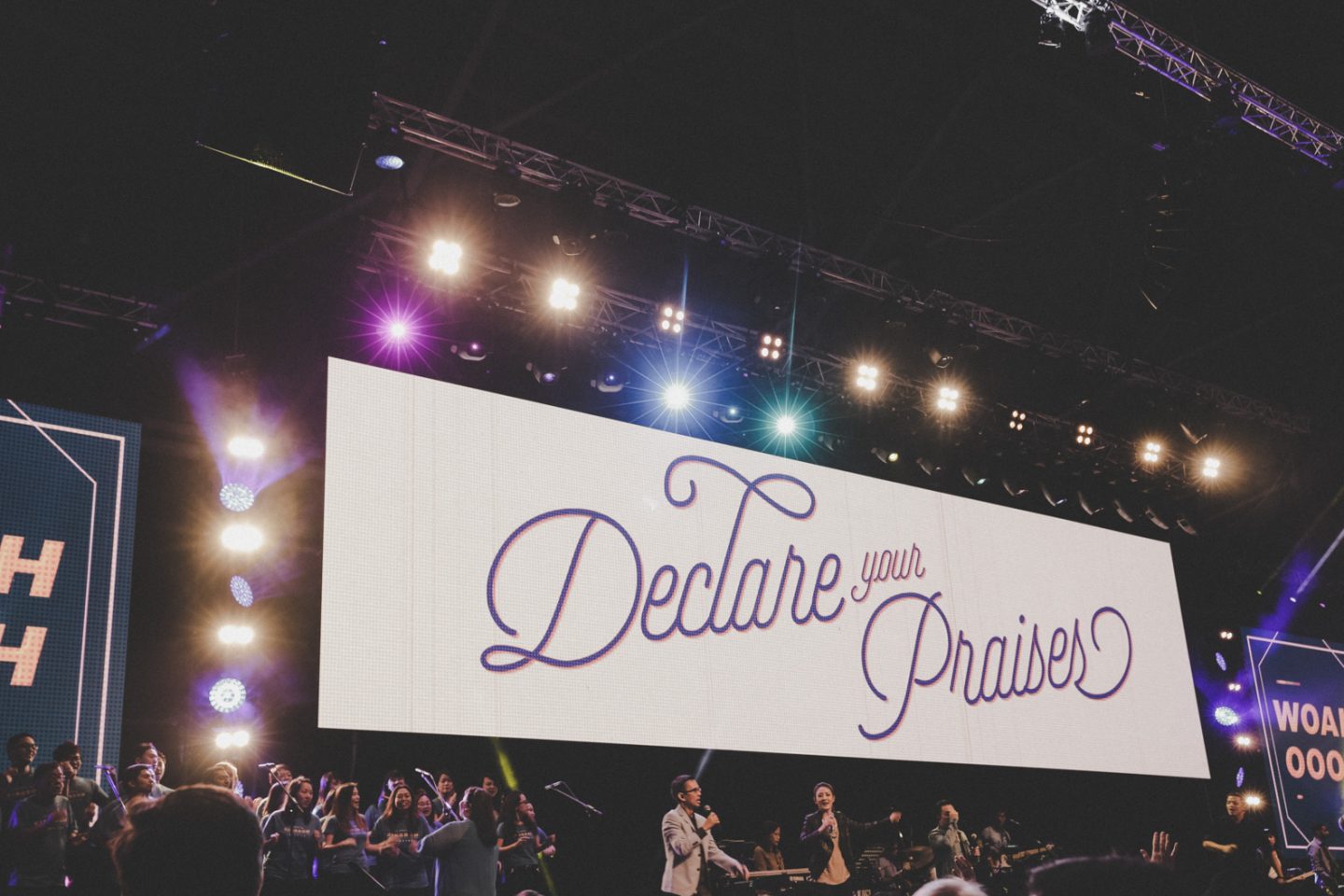A current trend in Christian circles is to put popular worship songs under the “theological microscope” and come up with a list of songs to cull from services.
Most of these voices conveniently conclude that “old hymns” are better, and restate the need to worship in Spirit and in truth – true, I concur. But without elaboration it remains a trite and unhelpful, wall-building aphorism.
Let’s take the conversation deeper by looking at some common objections to contemporary Christian music (CCM) and ask ourselves the hard questions. Most stone-throwers fail to realise that when their own preferences are screened through their own microscopes, the same cracks persist.
WHAT DO CRITICS SAY ABOUT MODERN WORSHIP MUSIC?
1. Modern worship is overly repetitive and emotional
This isn’t really fair. Show me how that that 1800s hymn with 12 stanzas isn’t repetitive. Tell the four living creatures (Revelation 4:8) to control themselves, when day and night they can’t stop singing.
We’re singing about our Creator here! Is it so wrong to repeat points that resonate, such as acknowledging the love that “never fails, never gives up, and never runs out on me”.
While we should encourage people to pursue a holistic, multi-faceted view of God, we cannot force them to constantly paint a complete theology in every song or set. I once sat through a worship set where, mid-way, someone decided to read Psalm 119. All of it. All 176 verses. It really didn’t work.
Meanwhile, other modern songs are flamed for being excessively, confusingly literary. (Sample: Why should “my anchor hold within the veil”? Answer: Hebrews 6:19.)
Too simple? Too deep? It’s all good. Even Peter was confounded by what Paul wrote (2 Peter 3:16). It doesn’t mean one is better or worse than the other – it’s just different ways of appreciating the one same truth.
What we need is balance: We’re called to love God with all our heart, soul, mind and strength (Luke 10:27).
So we should embrace emotion – but only that which is guided by our minds. Don’t scoff at those who shed some tears – they probably aren’t crocodiles (Matthew 15:8-9) or playing with onions.
2. Modern worship is musically lame
It’s okay to have an eye/ear for beauty. David, the King, is better known these days for his lyrics than his royal decrees.
While we should strive for truth, communal engagement and excellence, artistic impulse cannot be streamlined into cookie-cutters. Don’t put reins on authentic human expression.
There’s also the issue of people being too judgmental – musical snobs. One man’s meat is another man’s poison. It’s just a matter of taste, not the abominable sin. Five percent of people derive absolutely zero pleasure or emotional response from music. A small portion are objectively tone deaf.
If that’s not you, expand your repertoire and musical palate and you’ll find plenty of powerful CCM songs, powerfully worded, brilliantly composed and elegantly performed. I personally dig Rend Collective, Gungor, Kings Kaleidoscope and Ascend the Hill, among others.
Whatever it is, look for music that helps you connect with God. Write and sing your own songs if you like.
3. Modern worship is self-focused, entitled and narcissistic
Oceans is the scapegoat of choice. They say it’s not about us, but God. They reason that if it’s about God, certain words become taboo. The self-centredness of a song is meticulously calculated with every occurrence of “me”.
I’m not saying your convictions are invalid – some songs are absolutely focused on self-gain over God’s glory – but being human, we inevitably look through human eyes, think with human minds and feel with human souls. So the personal experience of God is the weight that connects the a priori prepositions of the Bible to a posteriori reality in our lives.
This testimony, paired with the blood of the Lamb, overcomes the evil one (Revelation 12:11). Should we silence it?
John Piper paints a beautiful, powerful view of God. God is most concerned with His own glory, but most glorified when we are most satisfied in Him. It’s our holy duty, therefore, to maximise our fulfilment in Him. Completing the cycle, He gives us exactly that: His best gift to us, is Himself.
Yes, it’s completely about God, but He makes it about us too. Both are fundamentally, intimately tethered. His breath is in us. Our Saviour revealed Himself as a human so our human eyes could see His glory in a way we can grasp.
Discern carefully but humbly, so that we don’t throw the baby out with the bathwater.
4. Modern worship is theologically questionable/wrong/divisive
Some lyrics are unbiblical by all counts – don’t sing them!
But most things are debatable. The modern church is quick to label: Nebulous Trinitarianism, Calvinist, classic Penal Substitutionary Atonement, God is my boyfriend. We criticise soteriology, eschatology, politics and everything else that doesn’t line up with our institutionalised cookie-cutters.
I respect your allegiance to truth, but don’t expect everyone to have the same view of it.
Songwriters come from various theological and cultural backgrounds. Even if Scripture is forever true, the cultural vocabulary of the times changes. For some, sloppy wet kisses aren’t as gross as others might find them.
I know some churches have stopped singing Matt Redman’s Blessed Be Your Name because of its refrain: You give and take away.
Described by God Himself as “righteous”, we sang Job’s words. Unfortunately, Job 1:21 was based on an incomplete, untrue revelation of God. God, they declare, is good. They believe God merely allowed Satan to take Job’s possessions, family and health.
But how do we make sense of verses where God hardened Pharaoh’s heart, or caused an evil spirit to torment Saul? It might not be how we’d phrase it, but it’s how the “inspired” biblical writers did.
When it’s about religion, everything is controversial, because everything is personal. The key here is not to be close-minded on theology, but to take the opportunity to wrestle with lyrics and test them against Scripture before moving in conviction. Don’t sing blindly – but don’t stay silent without reason.
We need the grace to put down that stone, and instead apply our heart and mind.
I long for the day we’re all schooled by God Himself. Till we see finally hear the four living creatures in their eternal refrain, we honour God in best way we know: By fixing our eyes and ears on His Son.









